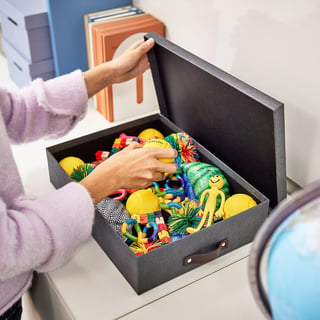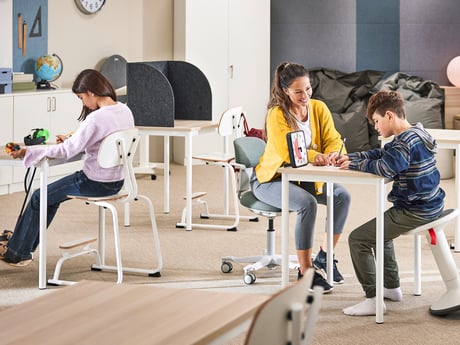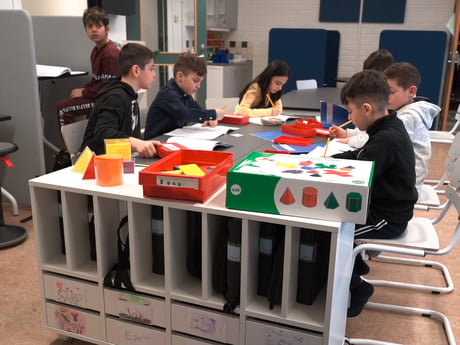- AJ Products UK
- Blog: Tips to Inspire Happiness at Work
- Tips & trends
- Supporting Students with Neurodiversity: Tips for a Smooth Return to School

Helping students with neurodiversity feel safe returning to school
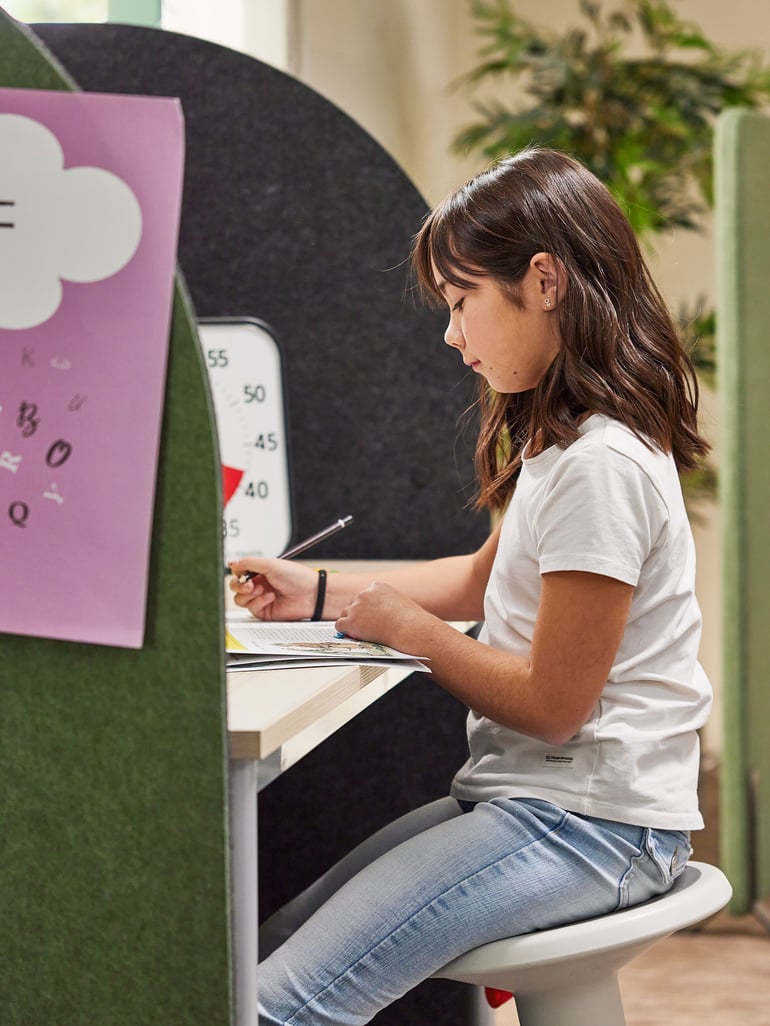
Challenges at the start of school
Many children and young people with neurodiversity experience changes and adjustments as major sources of anxiety. It is common to worry about not keeping up with schoolwork or that interactions with classmates may not go smoothly. All the new impressions and altered routines can feel overwhelming. What is most stressful varies between individuals, which is why it is important that each student with neurodiverse needs receives an individual plan. When the student receives the right support and preparation, returning to school becomes easier to manage.
Tips for returning to school for students with neurodiversity
- Personalise information and guidance in advance of the school year.
- Arrange a quiet visit to the school to meet teachers before classes resume.
- Help the student build secure and trusting relationships with adults at school.
- When changing year groups or moving to a new school, make sure adaptations and support needs are communicated to the relevant staff.
- Provide clear information about any altered schedules well in advance.
- Agree on what the student should do if a situation feels difficult or overwhelming.
- Follow up with both the student and school staff to see how the arrangements are working in practice.

Handover when moving up a stage or starting at a new school
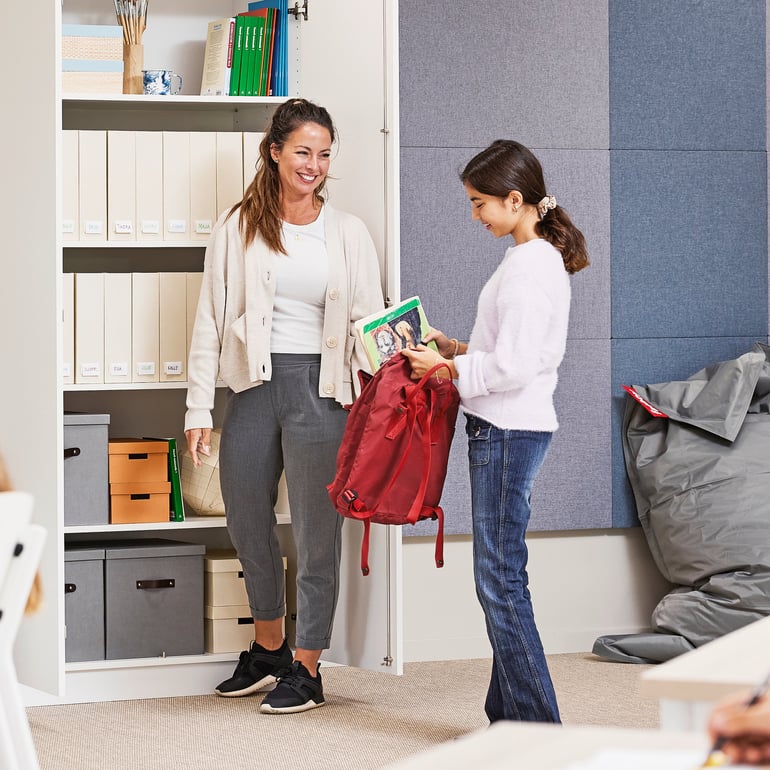
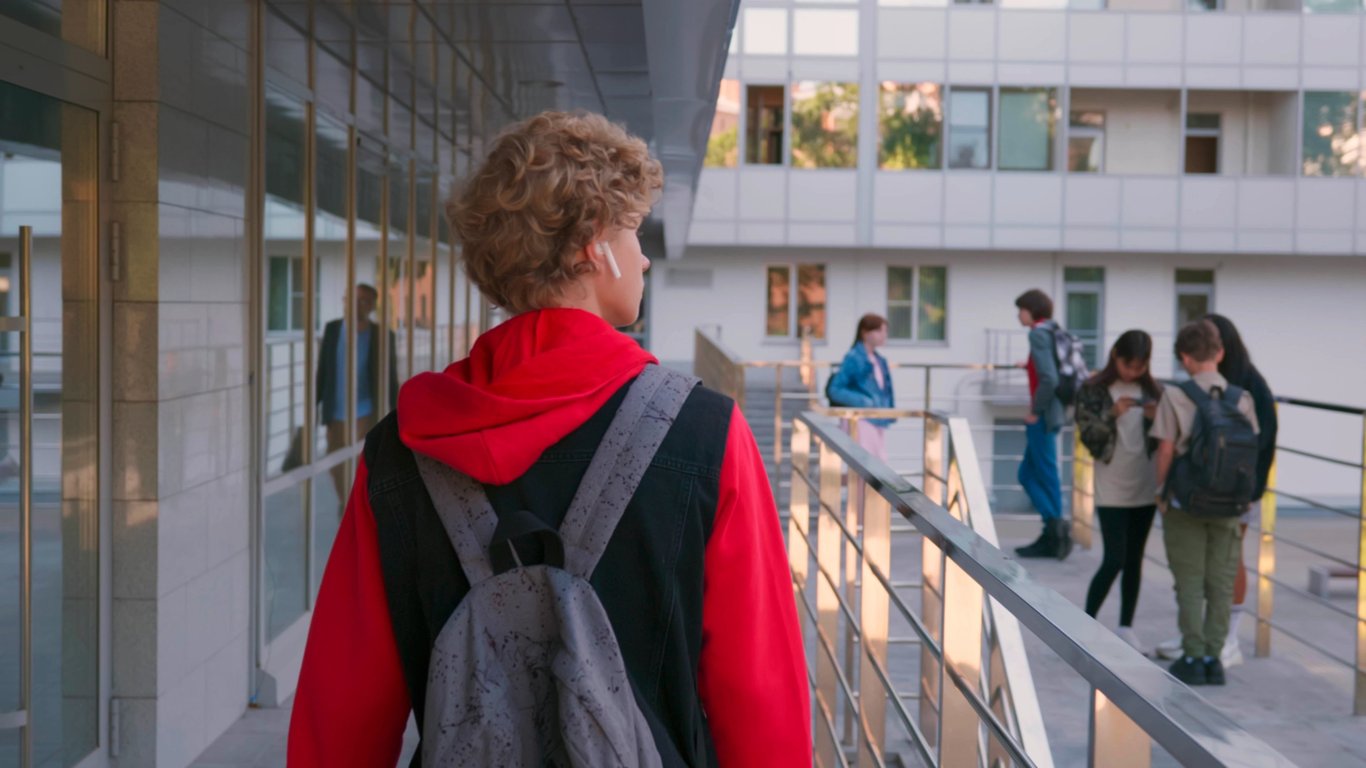
Helping students feel safe during the school day
Changes to the schedule can cause anxiety
For many pupils with neurodiversity, unexpected changes can be a major source of stress. It is often helpful if both pupils and parents are informed in advance about what is planned. Having time to mentally prepare makes transitions much easier to handle. This applies not only at the start of a new term but also whenever there are changes to the timetable, such as sports days, school trips, or themed activities.

Preparing before the return to school
The level of preparation and the amount of information needed will vary depending on each pupil’s individual needs. For some, detailed descriptions of what is planned can provide reassurance, while for others too much information may feel overwhelming. What matters most is providing clear and personalised information that supports both students and parents.
It is also important to remember that children and young people grow and develop quickly. Strategies and adaptations that worked well last year may not be the best solution this year, so regular review and adjustment are essential.
Agree on an exit plan
Even with careful preparation, challenges can still arise. In these situations, it helps to have a clear plan in place. Decide in advance who the pupil can talk to if they start to feel unwell, and whether there is a safe space where they can go to be alone for a while.
As with all support strategies, individual adaptation is key. The plan should be based on what makes the pupil feel most comfortable, while also being practical for the school to implement.
Need help? Ask our experts!
We at AJ Products are always available to help you with solutions suited just for your business. Contact us if you have questions on the choice of fabric, need some inspiration or want to know the alternatives that would best suit your premises. We can then tell you more about your choices.What is neurodiversity?
- ADHD - which can affect concentration, impulse control, and levels of activity.
- Autism spectrum disorder (ASD) - a lifelong condition that influences how a person experiences the world, communicates, and interacts with others.
- Language disorder - where a child’s ability to understand or use language is significantly affected, impacting learning and social interaction.
- Tourette's syndrom - characterised by involuntary movements and sounds, known as tics.
Get the latest product launches and offers sent direct to your inbox
Do you want to receive exclusive offers, information about new products and inspiration on how you can improve your workplace? Sign up for our free newsletter and be the first to receive our best offers.*By clicking subscribe, I confirm that I have read the privacy policy.



